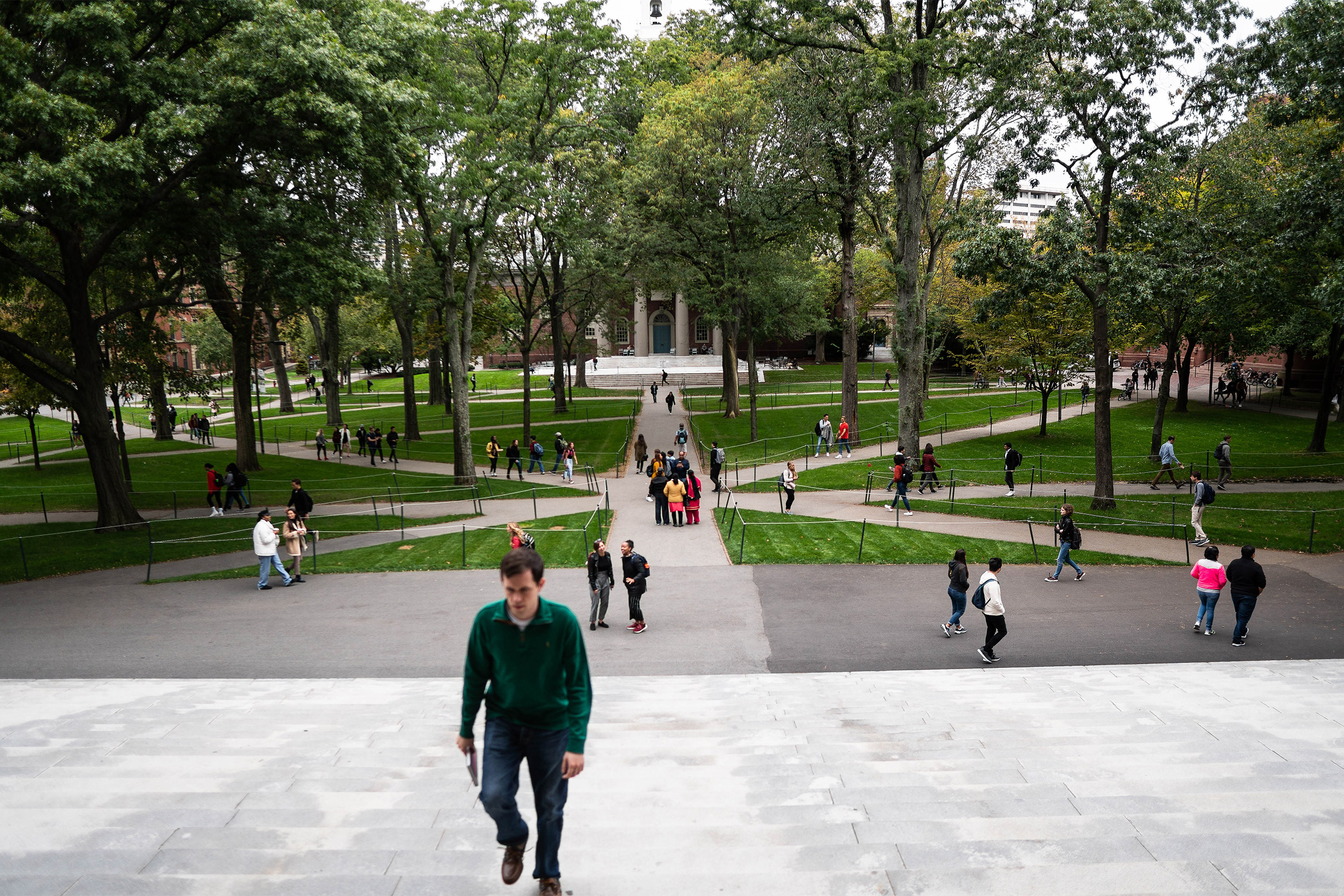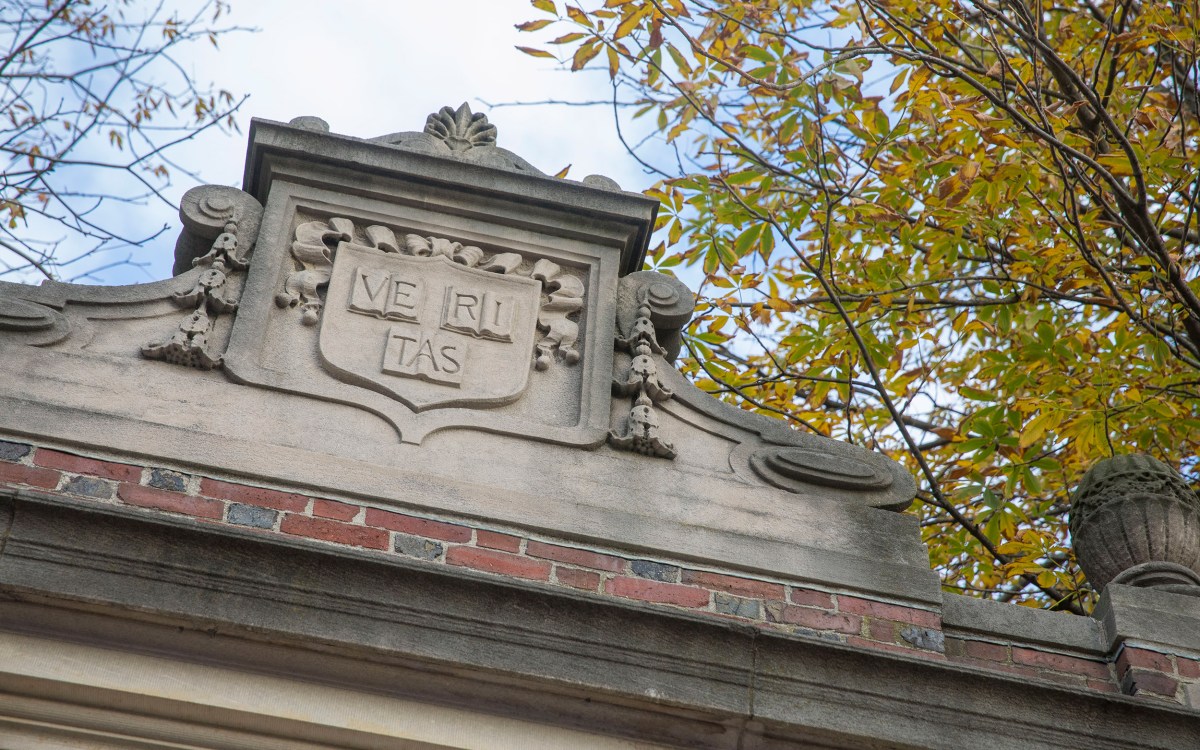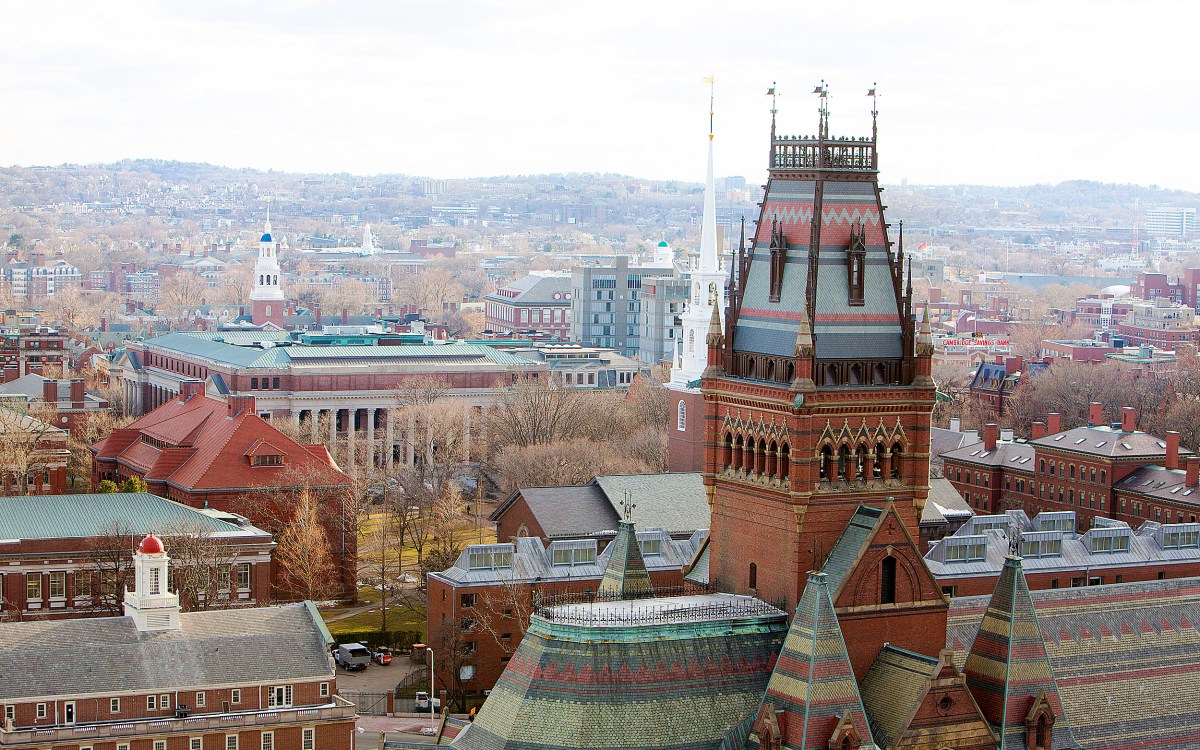
Many expressed feelings of encouragement upon learning of the ruling.
Photo by Sophie Park
Relief and vindication
Members of Harvard and the higher education community react to the ruling in the admission lawsuit
Itzel Vasquez-Rodriguez ’17 took the stand during Harvard’s admissions trial last fall, lending her voice in support of Harvard’s use of race as one of many factors in selecting the College’s incoming class.
Vasquez-Rodriguez said during her testimony in Boston’s federal courthouse that she knew from a young age that her Mexican American heritage set her apart. Her family spoke English and Spanish in their Southern California home and celebrated different holidays. She listened to different music than most of her peers. But Vasquez-Rodriguez cherished all of it because she knew herself to be the sum total of that history.
“I felt like so much of my experience and so much of my perspective and world view has been colored by my ethno-racial identity, and I wanted a school that took that into consideration and that valued that — that part of myself,” she said. “Honestly, I probably would not have applied to Harvard if they didn’t take race into account. Again, I was coming from a pretty diverse area in Southern California, and I wanted to go to a school that reflected the diversity of the U.S. population and of the world population.”
Upon hearing that the judge had ruled for Harvard, Vasquez-Rodriguez felt nearly vindicated.
“I think it will have an impact for generations to come,” she said of the judgment. “I think this ruling and the media that is being generated around the ruling will encourage folks to really look into and understand what race-conscious policies look like, what they are, and what they are not. It shows the nation that these types of policies are something that we believe in; they are something that we are willing to defend.”
Members of the Harvard and the higher education community and many participants in the trial have in recent days voiced satisfaction with last Tuesday’s ruling by U.S. District Court Judge Allison D. Burroughs. That judgment held that Harvard does not discriminate against Asian American applicants or use race as a determinative factor in admissions decisions, and that its practices line up with Supreme Court precedent. Many said the decision in the lawsuit by the group Students for Fair Admissions, Inc. (SFFA) in 2014 was an affirmation that inclusion and diversity at Harvard and at colleges and universities across the country can remain a top priority.
“I felt like so much of my experience and so much of my perspective and world view has been colored by my ethno-racial identity, and I wanted a school that took that into consideration and that valued that — that part of myself.”
Itzel Vasquez-Rodriguez ’17
Burroughs emphasized those values in her conclusion, quoting the testimony of Ruth Simmons, former president of Brown University and current president of Prairie View A&M University. Simmons noted that as the daughter of a janitor and a maid — former sharecroppers who had limited opportunities — she understood the benefits of diversity in education and the wider world.
“I’ve spoken about the conflicts in society, how deeply they run, how they resurface from time to time,” Simmons said from the stand last fall. “How can we imagine a world in which we are not creating leaders and citizens who have the capacity to mediate those differences? I cannot imagine it. And so it’s with great conviction that I say that we must continue to offer diverse undergraduate education to our young people to save our nation.”
Harvard’s Dean of Admissions and Financial Aid William Fitzsimmons ’67, Ed.M. ’69, Ed.D. ’71, who has spent the past 40 years at Harvard as a member of the department that helps shape incoming classes, called Burroughs’ decision “thorough and thoughtful.” Fitzsimmons, a key witness at trial, said a diverse student body ensures Harvard undergraduates will learn as much from each other as they will from their coursework.
“Certainly one of the best things about my own education at Harvard in the 1960s was the amazing amount I learned from my classmates,” said Fitzsimmons. “Today that opportunity is infinitely greater given the diversity of our students. Their wide range of economic, ethnic, cultural, and geographic backgrounds is astonishing by any standard.”
Margaret Chin agrees.
A Harvard graduate and professor of sociology at Hunter College and at the Graduate Center of the City University of New York, Chin also testified in Boston’s John Joseph Moakley Courthouse last fall.
“I wanted to defend race-conscious admissions and speak about how important a diverse learning environment is,” she said. “A diverse and inclusive learning environment with people from all kinds of backgrounds, all kinds of neighborhoods, all kinds of experiences, was extremely important in my understanding of the world. I feel that I benefited from that exposure and my whole life since graduating in 1984 has been shaped by my Harvard experience. My research focuses on how to decrease inequality in work, community, and education.”
Besides testifying, Chin also wrote a declaration for Coalition for a Diverse Harvard, one of the many student and alumni groups that filed briefs in support of the College.
“The percentage of Asian Americans on campus has increased from about 7 percent in my class, to now 25 percent for the class of 2023,” said Chin. “The process is working and a holistic process that recognizes their race also recognizes their whole selves and every aspect that makes them uniquely individual.”
Some, however, were less sanguine about the outcome. Harvard senior Kelley Babphavong is of Laotian and Thai descent, and has followed the case closely for the past year. She said that while she believes in diversity and equity, she sees race in college admissions currently as “more of just a visual kind of diversity” that “doesn’t get to the heart of what diversity really is for me, and that’s more economic or on an ideological basis.”
“I am excited to see this case appealed, and I think it will go all the way to the Supreme Court,” said Babphavong. “I am excited to see how race is defined and how race is used in college admissions in the future.”
Last Friday, SFFA filed a notice of appeal to the U.S. First Circuit Court of Appeals. A number of legal experts believe the case ultimately will be decided by the high court.
At Harvard Law School on Tuesday, SFFA attorney Adam Mortara spoke about the case with Randall Kennedy, the Michael R. Klein Professor, at an event co-sponsored by the Harvard Federalist Society and the Harvard Native American Law Students Association.
Mortara, a partner at the Chicago- and Denver-based law firm Bartlit Beck LLP, called Burroughs a dedicated professional and an even-handed judge who “issued a bad ruling.” He criticized the earlier Supreme Court judgments cited in her decision as well as her “views of the law and inferences of the facts,” which he deemed “absurd and wrong.” He also said that some statements in the opinion were “troubling.”
“The judgment of history will be very different from what came out of this very bad ruling by this very good judge,” said Mortara.
Many members of the broader higher education community breathed a sigh of relief after the ruling.
“The decision represents a clear and decisive victory for Harvard and will be welcomed at universities across the United States,” said Terry Hartle, senior vice president for government relations and public affairs at the American Council on Education.







